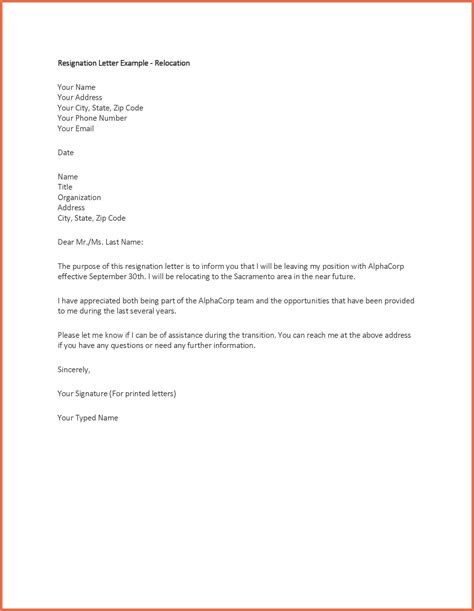Simple Resignation Letter Examples: Expert Advice

Resigning from a job can be a difficult decision, but sometimes it’s the best option for your career growth or personal life. Writing a resignation letter can also be tricky, especially if you’re not sure what to say or how to say it. In this article, we’ll provide expert advice and simple resignation letter examples to help you navigate the process smoothly and professionally.
Why Writing a Resignation Letter is Important
A resignation letter is a formal way to inform your employer that you’re leaving your job. It’s an essential document that sets the tone for your departure and ensures that everyone is on the same page. Here are some reasons why writing a resignation letter is important:
- It’s a professional way to communicate your departure
- It creates a record of your resignation
- It helps you maintain a positive relationship with your employer
- It can be used as a reference for future job opportunities
What to Include in a Resignation Letter
When writing a resignation letter, it’s important to include the following information:
- Your intention to resign
- The date of your last day of work
- A brief explanation for your resignation (optional)
- A thank you note to your employer and colleagues for the opportunity and support
- Your contact information for future correspondence
Expert Tip:
Keep your resignation letter brief and to the point. You don’t need to go into detail about why you’re leaving or include any negative comments. It’s best to keep it professional and positive.
Simple Resignation Letter Examples
Here are some simple resignation letter examples that you can use as a template:
Dear [Manager’s Name],
I am writing to inform you that I am resigning from my position as [Job Title] at [Company Name]. My last day of work will be [Date of Last Day].
Thank you for the opportunity to work with such a great team and gain valuable experience. I appreciate the support and guidance provided during my time at the company.
Please let me know if there is anything I can do to assist with the transition process. You can contact me at [Your Contact Information].
Sincerely,
[Your Name]
Expert Tip:
Always proofread your resignation letter before sending it. Check for any spelling or grammar errors and make sure the tone is professional and courteous.
FAQs
Q: Do I need to give a reason for my resignation?
A: No, it’s not necessary to provide a reason for your resignation. However, if you feel comfortable, you can include a brief explanation in your letter.
Q: Do I need to give two weeks’ notice?
A: While it’s common courtesy to give two weeks’ notice, it’s not always required. Check your employment contract or company policy to see if there are any specific guidelines.
Q: Should I talk to my employer before submitting a resignation letter?
A: Yes, it’s recommended to have a conversation with your employer before submitting a resignation letter. This allows you to discuss your reasons for leaving and ensure a smooth transition process.
Q: Can I send my resignation letter via email?
A: Yes, you can send your resignation letter via email. However, it’s best to follow up with a printed copy or a signed PDF document for your records.
Conclusion
Writing a resignation letter doesn’t have to be stressful or complicated. By following these expert tips and simple resignation letter examples, you can resign from your job professionally and with grace. Remember to keep it brief, positive, and courteous, and always proofread before sending. Good luck with your next career move!
